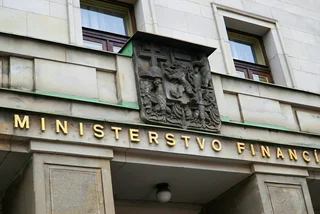The European Commission has proposed a directive for setting an adequate minimum wage in each European Union member country.
The proposed directive doesn’t require EU members to introduce statutory minimum wages, nor does it set a common minimum wage level. The proposal is intended to make states more transparent in the way they calculate how the wage is regularly updated according to economic developments, the European Commission said.
Separately, the Czech government will be increasing the Czech minimum wage as of Jan. 1, 2020, by CZK 600 per month to reach CZK 15,200.
Regarding EU standards for a minimum wage, the European Commission said that when minimum wages are set at adequate levels, they not only have a positive social impact but also bring wider economic benefits: They reduce wage inequality, help sustain domestic demand and strengthen incentives to work.
Adequate minimum wages can also help reduce the gender pay gap, since more women than men earn a minimum wage. The proposal also helps protect employers that pay decent wages to workers by ensuring fair competition, according to the Commission.
70% of workers on minimum wages find it hard to make ends meet.
— European Commission 🇪🇺 (@EU_Commission) October 31, 2020
Many of them are doing essential jobs on the frontline of coronavirus.
Applauding them is not enough, we have to recognise the value of their work.
More about #EUMinimumWages ↓
The current crisis has particularly hit sectors with a higher share of low-wage workers such as cleaning, retail, health and long-term care and residential care, the Commission added.
“We have seen that for too many people, work no longer pays. Workers should have access to adequate minimum wages and a decent standard of living. What we propose … is a framework for minimum wages, in full respect of national traditions and the freedom of social partners,” European Commission President Ursula von der Leyen said in a press release.
“Improving working and living conditions will not only protect our workers, but also employers that pay decent wages, and create the basis for a fair, inclusive and resilient recovery,” she added.
Nicolas Schmit, the European commissioner for jobs and social rights, said that almost 10 percent of workers in the EU are living in poverty, “This has to change. People who have a job should not be struggling to make ends meet. Minimum wages have to play catch up with other wages which have seen growth in recent decades, leaving minimum wages lagging behind,” he said, adding that ensuring adequate minimum wages is included in the European Pillar of Social Rights.
Minimum wages currently exist in all EU members. Twenty-one countries including the Czech Republic have statutory minimum wages while in the remaining six — Denmark, Italy, Cyprus, Austria, Finland and Sweden — minimum wage protection is provided by collective agreements. In many countries, including the Czech Republic, the calculation of the minimum wage does not have clear criteria.
The minimum monthly wage varies considerably from one EU member to another to another. The highest, in Luxembourg, is equivalent to over CZK 54,000 while the lowest minimum wage is in Bulgaria, with just over CZK 8,000.
Three Czech members of European Parliament polled by news server iDnes have mixed opinions of the proposal.
Marcel Kolaja (Pirates) is in favor of opening discussions on the topic. “The key is that the proposal does not call for the unification of the minimum wage. The proposal opens a debate on negotiating collective agreements. The fact is that countries with a functioning principle of collective agreements have fewer low-income workers. Therefore, the debate on this topic certainly makes sense,” he said.
Martina Dlabajová (ANO) said the proposal wouldn’t benefit Czech workers. “These steps may lead to even greater gaps between EU member states, especially now that European economies, including the Czech one, are experiencing a slump due to the COVID-19 pandemic. If the draft directive passes in this wording, the Czech Republic can forget about catching up with richer Germany or other Western European countries in the near future,” she said.
Luděk Niedermayer (TOP 09) was in favor of increased transparency. “What is proposed, in my judgment, will have minimal (if any) immediate effect on the labor market. From the point of view of our previous experience, it is a good idea to appeal to transparent and, above all, well-founded decisions on setting the minimum wage, if we are to introduce this policy,” he said.
BusinessEurope, a lobby group representing businesses in 35 European countries, strongly opposes the proposal. It said the proposal goes against the majority view of EU members and ignores the objections of the European business community.
“We want fair wages set by national social partners, not politically manipulated minimum wages,” BusinessEurope Director General Markus J. Beyrer said in a press release.
“What the Commission is proposing is a legal monster. … Companies are fighting for their survival and to save jobs threatened by the COVID crisis. They have no margins to absorb the cost of dangerous experiments on minimum wages at EU level,” he added.
📢Crucial wages directive needs improvement!
— EUROPEAN TRADE UNION (@etuc_ces) October 28, 2020
“Higher minimum wages and more collective bargaining can be achieved by amending the Directive" says @EstherLynchs
“Trade unions will fight hard to secure the improvements needed from MEPs and Ministers.”https://t.co/KeJAY4mDNI pic.twitter.com/MCQ6HWmvcB
ETUC, a European umbrella group of trade unions, said the proposal didn’t go far enough. “Higher minimum wages and more collective bargaining can be achieved by amending the directive. Trade unions will fight hard to secure the improvements needed from MEPs and ministers,” ETUC Deputy General Secretary Esther Lynch said in a press release.
Czech minimum wage is increasing
The Czech minimum monthly wage, which affects around 150,000 employees, will increase by CZK 600 as of Jan.1 2021 to reach CZK15,200. Wage costs will increase for employers, and it will also be more difficult to draw a tax bonus.
PARTNER ARTICLE
The CZK 600 rise for next year will increase wage costs by CZK 803, since employers also contribute to compulsory social and health insurance for employees, and that amount is linked to the minimum wage level.
Health insurance for employees who are not also state insured is also linked to the minimum wage. In 2021 the minimum amount will rise to CZK 2,052.
Parents who want to draw a tax bonus will have to report higher incomes. In order to be able to draw the tax bonus, people need to have an annual active income of at least six times the minimum wage. In 2021 this will amount to CZK 91,200. Only one of the parents can claim a tax benefit for children.
Retirees also benefit from the increase in the minimum wage, as it also affects the amount at which paid pensions are exempt from tax. In the 2020 tax return, pensions up to CZK 525,600 are exempt, while in 2021 regularly paid pensions will be tax-exempt up to CZK 547,200.
The Czech Republic is among countries where the minimum wage has grown the most in recent years. In 2015, it was set at CZK 9,200 and in 1991 it was CZK 2,000.












 Reading time: 5 minutes
Reading time: 5 minutes 





















